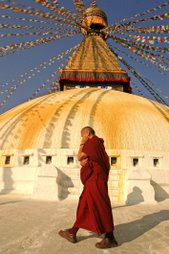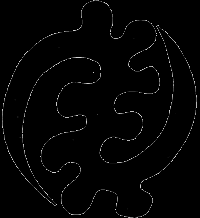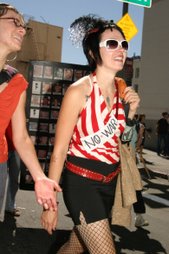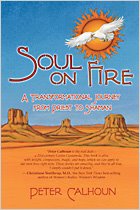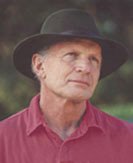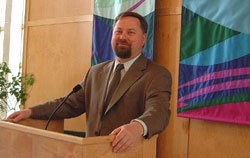
The night before her annual mammogram in the summer of 2003, Jan Frazier said a prayer. "Could I maybe do this [mammogram] tomorrow without being terrified?"
Jan, who turned fifty that summer and had endured three breast cancer scares in her early thirties and forties, was afraid of an early death.
This is understandable. In 2003, the U.S. Cancer Statistics Working Group reported that one out of every four women diagnosed with breast cancer dies.
Jan, who turned fifty that summer and had endured three breast cancer scares in her early thirties and forties, was afraid of an early death.
This is understandable. In 2003, the U.S. Cancer Statistics Working Group reported that one out of every four women diagnosed with breast cancer dies.
"The specter of a possible young death put fear in my face, the ugly thieving monster of it," Jan writes in her soulful story of spontaneous awakening: When Fear Falls Away.
The following morning when this mother of two teenagers went to see her radiologist at a Jamaica Plain hospital, in Massachusetts, she noticed a change.
"I really was not afraid today. I couldn't get over it. After the films were taken and then the waiting began, I watched myself sit comfortably in the waiting room, reading my magazine, paying attention to what it said, instead of how it always was in the past, looking at the pages but not really seeing them."
When Fear Falls Away is a "testimony to a life transformed – an ordinary, fully suffering life transformed." It is about a middle class American woman’s victory over her worries about children, guilt, others' opinions, health, money, and fear of death.
There's so much suffering in our world. Even those who appear to have everything going for them are hurting deep within. The big cars, mansions on beaches, and the latest electronic gadgets do not in themselves satisfy our deep yearning for inner peace. When Fear Falls Away tells of the ocean of joy that is possible for all of us when we turn within to the inner consciousness. Material joy is like a drop in that vast expanse of deep peace.
Theravada Buddhism teaches that "enlightenment consists of the complete eradication of craving and attachment." In Zen Buddhism, it comes through emptying of the mind. In Western Christian literature, enlightenment is union with God. In Orthodox Christianity, it is divinization, or the process of becoming God.
Many doors lead to enlightenment's interior castle and include various forms of spiritual practice: meditation, devotion, and prayer. Mathematical or philosophical abstraction and being in the presence of enlightened individuals are other doorways. Enlightenment can also happen spontaneously.
These experiences are ineffable, difficult to express in prosaic terms. In Western Culture the enlightened individual can be misdiagnosed as mad if the individual experiencing this breakthrough in consciousness is not sophisticated enough to check himself or herself. At a diner while she was having breakfast with Peter, her significant other, we see Jan struggling to control her overwhelming urge to go out to tell everyone eating: "Do you know how lucky you are to be alive?"
Enlightenment is the most sublime change any individual can experience.
"The world has not changed. It is the looker who has changed. But I keep having to hit myself upside the head to believe the world is its same self. I cannot believe it. It's like I want to say, What? It's been this way all along? You mean, I could have lived my whole life this way, spared myself all that pointless anguish?"
I have borrowed a copy of When Fear Falls Away from the local library for my significant other who is reading it. I have bought two copies: There are some books you skim and forget. There are some books you read to remember. And there are some books you study and keep. For me, Jan Frazier’s book is a book I will read and reread, marking it, making notes, getting clues and tracking down all the influences that have prepared Jan for this most wonderful of human experiences.
Here is a like to Jan Frazier's website

